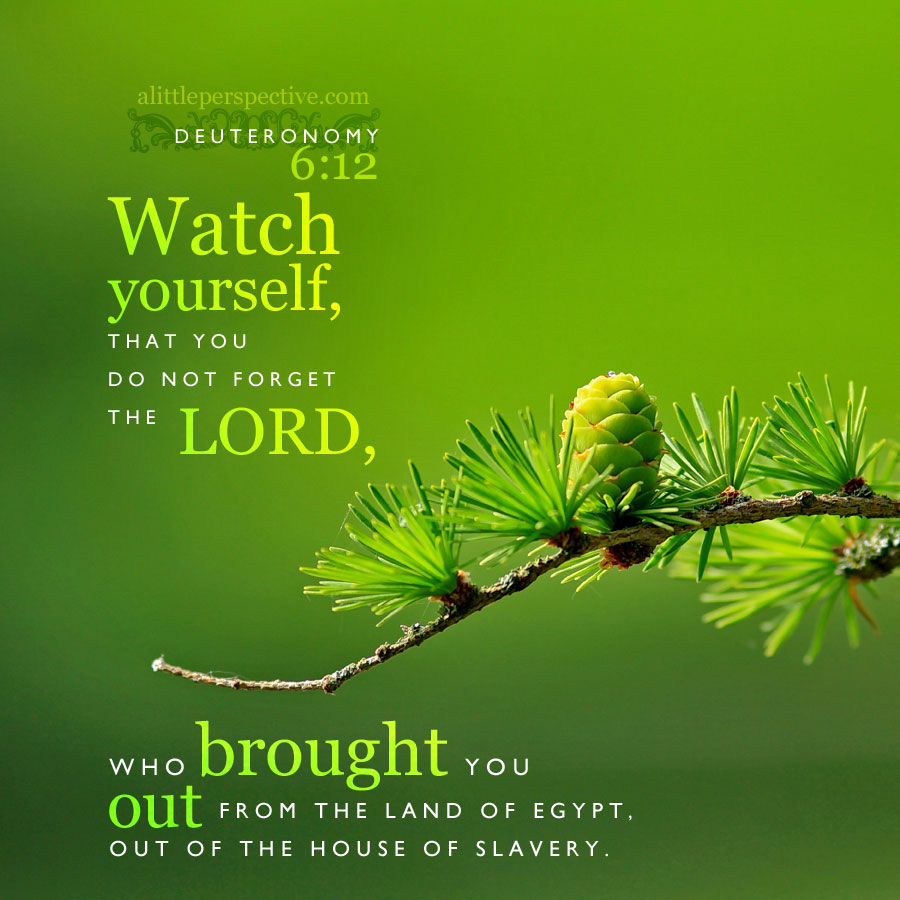Read Deuteronomy 6:10-15 at Bible Gateway.
In parashah bazneikhem, the parashah before this one, we saw the introduction of four verbs that YHVH reminds us of over and over and over again. They are, hear, pay heed, teach, and do. We saw that the first paragraph stumah (weak paragraph according to the Hebrew paragraph divisions) in this parashah emphasized hearing. This parsha emphasizes paying careful heed.
The key verb of instruction in this paragraph is this:
“So it shall be, when … [blessing comes upon you] … then beware, lest you forget YHVH …”
The Hebrew for “beware” is the primitive root, Strong’s H8104, שמר, shamar, shin + mem + resh. According to the lexicons, it means, “to keep, to watch, to guard.” In the ancient pictographs, the shin ש is the two front teeth, and means “two, sharpen, or press.” The mem מ is the water, and thus can mean “sea, blood, chaos,” or even “mighty.” The resh ר is the head of a man, and can mean anything that is head, top, first, or beginning. The Ancient Hebrew Lexicon tells us that the shin + mem in this root, were originally a sin + nun, the similar sounds becoming transposed over time.
So the true ancient Hebrew root is סנר sin + nun + resh. The sin ס is the thorn; the nun נ is the seed. The sin + nun meant “to guard, protect,” from the thorn bushes the shepherds used to surround their flocks at night to guard them from predators. The sin + nun literally meant to guard (for) the next generation. So the idea of shamar, is to closely guard (sin –> shin) that which is of first importance (resh) for the next generation (nun –> mem).
This passage teaches us that it is easier to closely guard for the next generation those things which are of first importance, when things are a bit of a struggle. When things get easy and we are full to overflowing, it is human nature to get lazy. That is when we especially need to beware. Many of the commands of Torah are designed to internalize the remembering and the not forgetting, for example celebrating the feast days. Each feast day commemorates something in history concerning YHVH and His people, something accomplished by Messiah in His first advent, and something that is yet to be accomplished in Messiah’s second advent. So by observing the feasts, and remembering on them what we are commanded to remember, we help ourselves to closely guard for the next generation those things which are of first importance.
The theme of the parsha stumah from Deu 6:10-15 is, Take heed to that which we have now heard, YHVH’s Word.

















Leave a Reply